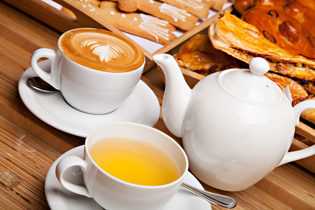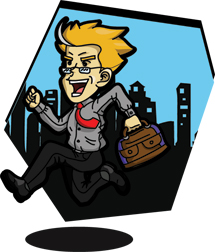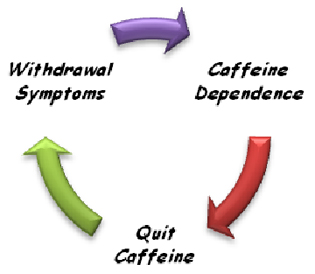
A cup of tea or coffee is always welcome by people during or after a long day at work. Likewise, students world over have demonstrated far more faith in coffee to complete their studies than in the college system. Why? All for a stimulant called caffeine that is known to drive away drowsiness and energize people.
Besides tea and coffee, a variety of other foods also contain caffeine, for example, some soft drinks, energy drinks, chocolates and a few processed foods. So, how does caffeine affect your mind and body? And, why do health experts discourage people from consuming too much of it? Read on to decipher the 'caffeine code.'
Spring in Your Step

Caffeine is a psychoactive drug that stimulates the central nervous system. It increases the focus of our grey cells, enhances concentration of the work at hand and keeps the mind alert. Consumption of caffeine has also been known to boost the energy level, making it is immensely popular with those who work around deadlines. With so many benefits, it's no wonder why people look forward to their daily dose of this.
Did You Know? Tea is the second most consumed beverage in the world after water.
Different People, Different Effects
Did You Know?
Tea is the second most consumed beverage in the world after water.
The effects of caffeine aren't same for everyone. A moderately sized cup of coffee or tea can have a lasting effect on the drinker for approximately 4-5 hours. Though, the extent and length of time for which the body and mind experience a heightened sense of wellbeing depend upon the physique (including lifestyle and genetic factors) of the person who is consuming the drink. To cut a long story short, caffeine has varying effects on different people.
Finland's Love for Coffee Finland has the highest per capita consumption of coffee in the world, which annually works out to 12 kg per person. In contrast, India's coffee consumption is only 90 gm per person.
Excessive Intake, Abundant Problems
Finland's Love for Coffee
Finland has the highest per capita consumption of coffee in the world, which annually works out to 12 kg per person. In contrast, India's coffee consumption is only 90 gm per person.
If you think excess of caffeine will give you a high, think again!
1. You might not want to consume excess caffeine before your dream date as it leads to frequent urination.
2. Being in love is not the only thing that leads to sleepless nights. Excessive caffeine consumption may also cause insomnia!
3. Large amounts of caffeine are not recommended for pregnant ladies.
4. Similarly, some research suggests that caffeine may hamper learning among children.
A Few Quick Facts
As per U. S. Food and Drug authority (FDA), caffine does not get rid of the effects of alcohol.
600 milligrams of caffine is considered excessive as per US FDA. This works out to four to seven cups of coffee.
Caffine is found naturally in more than 60 plants besides coffee beans.
Loop of Crazy Addiction

Researchers state that a tiny proportion of today's generation suffers from caffeine dependence. Such people who are dependent on caffeine may start suffering from withdrawal symptoms if they suddenly try quitting. Symptoms like headaches, depression, irritability, anxiety, etc. are common and can prompt them to go back to caffeine dependence; making a vicious loop, that is hard to break.
However, let nothing mar the blissful moments of sipping your favorite cup of steaming beverage. Remember, the key to enjoyment lies in 'moderation'. Avoid excessive dependence on caffeine, and you will be just fine!







